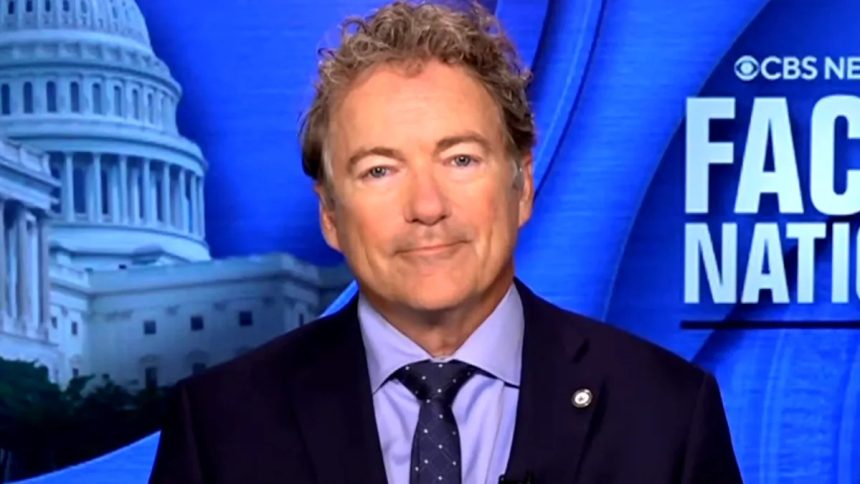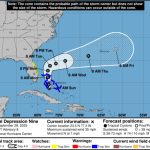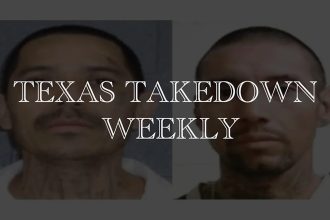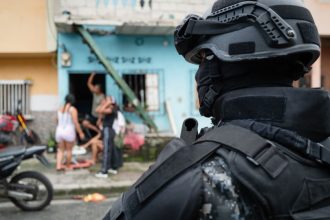The following is the transcript of the interview with Sen. Rand Paul, Republican of Kentucky, that aired on “Face the Nation with Margaret Brennan” on Sept. 28, 2025.
MARGARET BRENNAN: We want to go now to the chairman of the Homeland Security Committee, Senator Rand Paul, who joins us from Bowling Green, Kentucky. Good morning to you, Senator.
SEN. RAND PAUL: Good morning. Thanks for having me.
MARGARET BRENNAN: Well, I want to start on that news you just heard, that the President is basically expecting a shutdown and possibly to carry out these mass layoffs. Do you think all of this is just a threat to make Democrats fold?
SEN. PAUL: Well, I think both sides have to look at the proposals for spending and decide, you know, what is the best way forward for the country. The Republican proposal adds about $2 trillion in debt over the next year, so it’ll be short $2 trillion. So I oppose the Republican plan because it adds debt. The Democrat plan would add $3 trillion in debt. So really, both plans are laden with deficit spending, and I think that’s the biggest problem that our country faces. So I’ve actually proposed an alternative. I proposed a penny plan, which would cut a little bit across the board, and my plan would balance over about five years, we got a vote on mine last week, and 36 Republicans supported it, 16 didn’t and no Democrats did. So my plan didn’t pass either, but the plan that I would support would be a plan that reduces spending and reduces deficit spending.
MARGARET BRENNAN: Well, we have this immediate deadline, though, of this week, and we know leaders are going to the White House. If we end up in this shutdown. Do you think it is appropriate and illegal for the executive to carry out the kind of mass firings that the budget director laid out in that memo this past week?
SEN. PAUL: You know, there’s been several cases adjudicated now all the way to the Supreme Court, and the President seems to have won every one of them on his ability to hire and fire within the executive branch. And I think this is understandable, because in the executive branch if the president can’t fire him, who can? and so I think the President has a great out
MARGARET BRENNAN: –Without consulting congress?
SEN. PAUL: Over executive branch employees- for hiring and firing people in the executive branch? I think he has a great deal of leeway. The court has upheld this repeatedly, and so I suspect they will, even when Congress- you know, the Democrats try to protect this agency called the Consumer Financial Protection Board, and they say, well, the funding will come from the Fed. You won’t get to vote on the funding, and the person hired can’t be fired. Well, he did fire that person in 2020 and the courts upheld that in 2021, in the Supreme Court, and really since then, every case he has won. And as you know, I’m a equal parts critic of both Republicans and Democrats. I’ve criticized Trump on things, but the one thing is on the hiring and firing. I think he’s going to win every one of those cases.
MARGARET BRENNAN: I want to ask you about your role in Homeland Security. You are chairman of that oversight committee. The President announced yesterday, and I’m sure you saw his social media post, that he’s going to send troops to Portland, Oregon. He called it a ‘war ravaged’ city. He said he’s also going to send troops to any immigration facilities around the country which are, quote, ‘under siege from attack by antifa, and other domestic terrorists.’ End quote. He said he’s authorizing full force if necessary. Do you know what full force means here? Do you know what’s in store?
SEN. PAUL: I think he has the legal authority to send troops to protect federal buildings and federal proceedings such as courts, and that’s been around since Civil Rights Era. We’ve acknowledged that the federal government will sometimes come in despite what states say. I do think it’s better when the states agree to it. For example, I mean, in Chicago- Chicago is a nightmare. It is literally a war zone, and the people being hurt, the worst are those who are poor and living in these communities. I’ve been to the most dangerous precinct in Chicago, and it’s just despair and sadness and these young boys are growing up with no families–
[CROSSTALK STARTS]
MARGARET BRENNAN: But you haven’t been briefed on the plans for Oregon?
SEN. PAUL: There’s no restaurants, no drugs- excuse me?
MARGARET BRENNAN: But you haven’t been briefed on plans to send troops to Oregon?
SEN. PAUL: Not for Portland, no.
[CROSSTALK ENDS]
MARGARET BRENNAN: Okay, because we have not yet seen troops in Chicago, though you’re referencing the President’s past threats to do so. In Oregon, the governor said there’s no need, and they don’t want these troops, but the mayor said- the mayor of Portland, federal agents have been arriving along with some armored vehicles. Are you comfortable with pushing the limits here of some of these uses of either potentially troops or federal agents.
SEN. PAUL: I think both the people in Portland and across America have to decide about this. You know, we had anarchy in Portland for like, six months or a year. The city didn’t even control large swaths of the city. These had federal buildings on them, and so I think there is a role for the federal government. Am I excited about it? No. I’d prefer not to have troops in our cities, or I’d prefer them only to come, you know, with the acceptance of the local authorities. But I do think there is a role if the states will not step up. Portland did not step up, and they let their city go, you know, they let it burn for goodness sakes, and then they let a whole area become the city, you know, these blocks of anarchy where some sort of local thug rule was a- was- was going on. So I don’t know, I think ultimately what’s going to happen. And I think some of this is the President showing the politics of Republicans versus Democrats is eventually cities like Chicago and Portland are going to give up on Democrats because their people are dying. It’s their people in their community. The people have been supporting the Democrat party for decade after decade. They are the ones dying. It’s not the people in the rich neighborhoods that are country club Republican, it’s the poor people in every city is dying. Well, you know the cities have to step up on this.
MARGARET BRENNAN: Well, I’m asking about your oversight role, because it seemed like the President’s statement yesterday, it took a turn. It wasn’t how he talked about Chicago. In fact, when he was speaking in this social media post about Portland, he used language here about domestic terrorists. And we know just a few days ago, the President did issue that executive order saying he wanted to declare this anti fascist group, antifa, to be a domestic terrorist organization. Have you seen evidence that these left wing activists are now becoming a more organized group with national leadership, something the FBI has said in the past, that they’re really more of an ideology?
SEN. PAUL: I think you lose the description as activists once you start wielding weapons, and you show up with helmets and you’re breaking windows. That’s what was going on apparently in Portland, at the ICE building. I do think, though, that it’s important when people start talking about labeling people, that we realize everybody, the worst among us, even those accused of heinous crimes, will get due process. So we can’t single out a group and say, oh, they’re not going to get due process because we’re calling them terrorists. So I’d be careful of the labels, but I’m absolutely for going after the people wielding clubs and sticks and fighting with the police and trying to get into the federal buildings. They have to be punished, and they will be.
MARGARET BRENNAN: So do you have concerns about designating groups with these anti-government sentiments as domestic terrorist groups. I mean, do you start worrying about Fourth Amendment violations?
SEN. PAUL: I don’t know that it’s helpful to label groups, particularly since antifa, there are some real people in antifa, they’re real violent people, but it is an amorphous group in the sense that I don’t think they have a president, they don’t have a local chapter. It is more an ideology. And it was useful, maybe around the world, to call things terrorism. But there’s different rules of engagement. When we have to go after terrorist in the Middle East, we send- we send a Hellfire missile or a drone, often. In the United States, it’s much tricker to be a police. I have a great deal of respect for our police because you’re right. They have to respect the Fourth Amendment, the First Amendment, and so we have to be careful with labels, but that doesn’t mean we should go soft on antifa and these people that are committing violence.
MARGARET BRENNAN: All right, Senator Rand Paul, thank you for your time this morning, ‘Face the Nation’ will be back in a minute. Stay with us.
Trump plans to send troops to Portland, Oregon; governor says it is “not needed here”
Open: This is “Face the Nation with Margaret Brennan,” Sept. 28, 2025









